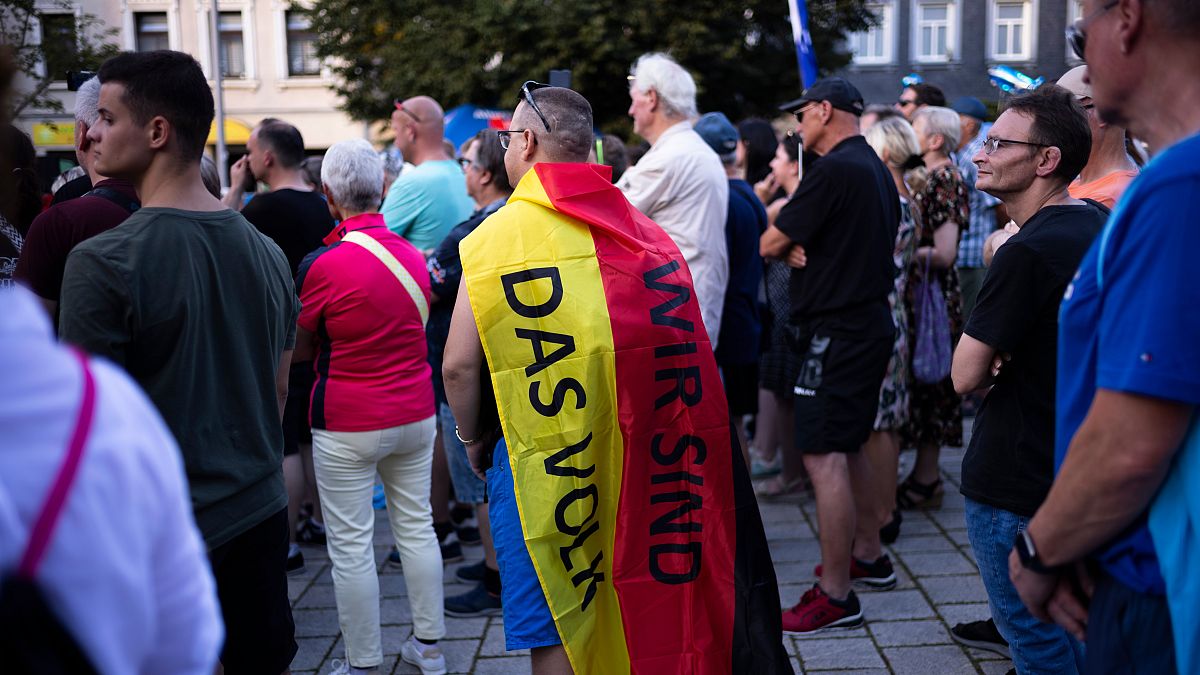Polls show the right-wing Alternative for Germany party (AfD) has a strong lead in the east German states of Thuringia, Saxony and Brandenburg – where elections will take place in September.
Migrant and ethnic communities in Germany have raised concerns over a growing support for far-right parties, such as the Alternative for Germany (AfD) party.
The party is known for its fierce anti-immigrant rhetoric, leveraging migration as a key voter issue in eastern Germany.
This has caused anxiety amongst not only those who work to combat discrimination, but also minorities such as Black Germans and African migrants, who are among the most visible minorities and often the first to be discriminated against.
This is particularly prominent in the state of Thuringia, which will go to the polls next week.
Current polling shows up to 30% of voters in Thuringia say they want to cast their ballot for the AfD, putting the party ahead of other mainstream parties.
Experts say that specifically in Thuringia, radical far-right forces have created an environment that’s hostile toward minorities, including Black people.
“In recent years, an extreme right-wing movement has formed in Thuringia, which has contributed to a noticeable ideological radicalisation of its followers. Politically, the Alternative for Germany party is the main beneficiary of this,” says the Ezra Foundation NGO.
The AfD’s Thuringia branch is particularly radical and was put under official surveillance by the domestic intelligence service four years ago as a ‘proven right-wing extremist’ group.
But the AfD also wields great power in the states of Saxony and Brandenburg, where elections will be held on 1 and 22 September respectively.
All three states account for 10% of Germany’s population and their election results are expected to have a major influence on national politics.
Deepening migrant debate
The migrant debate in Germany has, in recent days, been exacerbated by the knife attack which killed three people at a street festival in Solingen.
The attack was allegedly perpetrated by a Syrian asylum seeker who should have been deported last year after his claim for asylum was rejected.
Opposition parties have used the incident to criticise the German government for failing on migration policy.
The government has responded by vowing to tighten deportation rules, and Chancellor Olaf Scholz is set to meet CDU opposition leader Friedrich Merz to discuss the matter further.
Meanwhile, Germany’s Justice Minister Marco Buschmann has confirmed rejected asylum seekers could be deported to Syria and vowed to seek a solution for Afghanistan.
“I am of the opinion that one can be deported to Syria. The courts have already decided that. Just think of the Higher Administrative Court in North Rhine-Westphalia. Because we also have regions in Syria where people can be safe. I think we also need a solution for Afghanistan,” he said.

